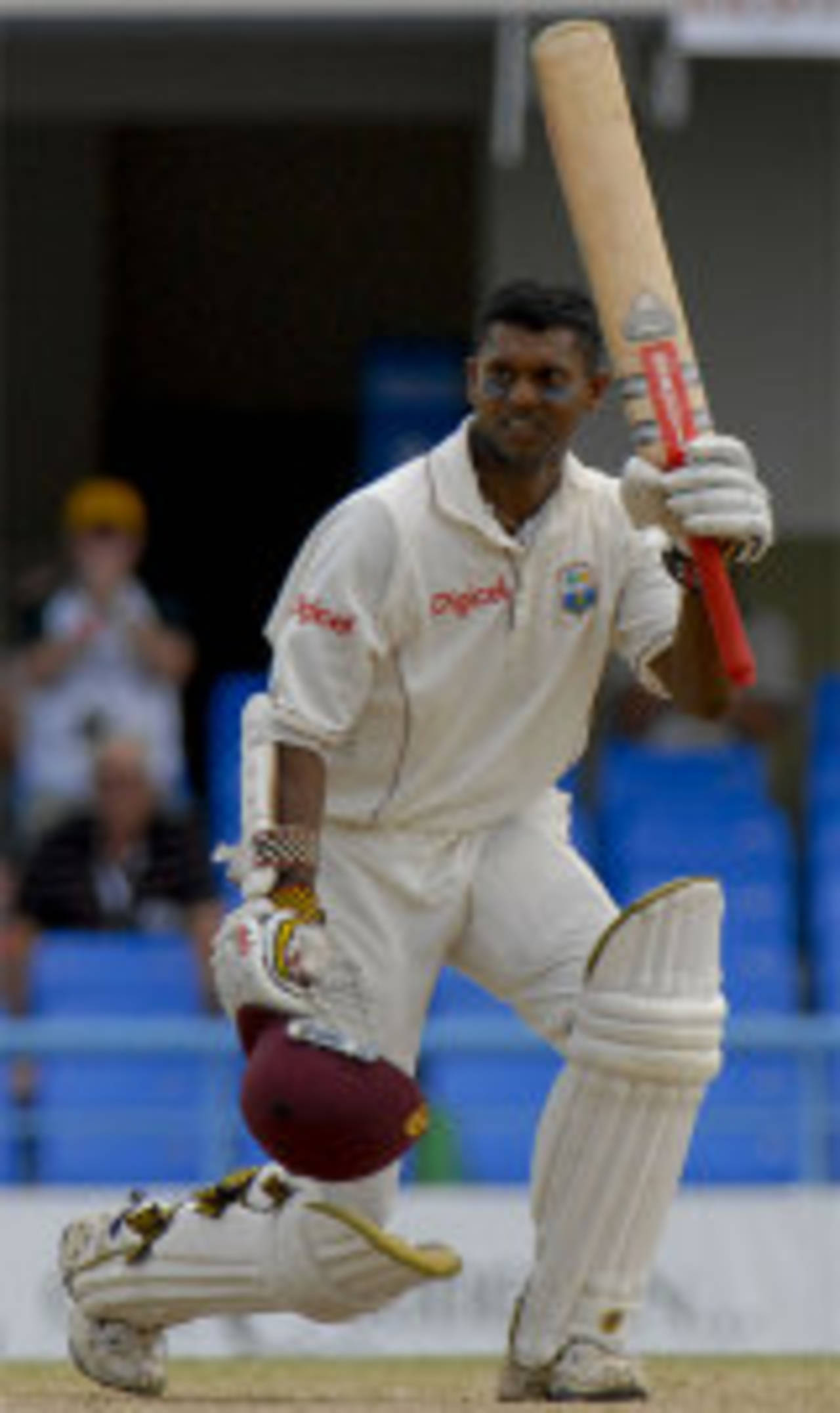The pain of Dwayne
The prospect of seeing Smith in England colours one day is by no means an unattractive one
Rob Steen
Feb 25, 2013, 10:42 PM

DigicelCricket.com
So there IS some justice in the world. Recent events in Darfur, Georgia and Zimbabwe had not given rise to a surfeit of optimism but at least Shivnarine Chanderpaul has been anointed as ICC Player of the Year. And how he deserves it. Partly for rekindling the spirit of Horatio, partly for services to that most old-fashioned of sporting virtues, namely patience, but mostly for the inspiration he will, one hopes, provide for Caribbean cricket.
Quite how Dale Steyn beat him to the Test award beats me. In 2008, our Shiv has batted 13 times in Tests, against South Africa, Sri Lanka and Australia, the three strongest attacks in the game, remaining unconquered on six occasions, each of which has seen him tally at least 65. He has passed 50 eight times, and averages 101. In South Africa his series average was 82.33; the next most consistent West Indies batsman was Marlon Samuels (52), and only one other team-mate averaged more than 22. Against the Ozzers he averaged 147, scoring one fewer 50-pluses than the rest of the side combined. In all – and here’s the best bit, the clinching bit – he has endured for 2,267 minutes, ie. 37.78 hours. Which gives him an average of 174 minutes per crease visitation: all but three hours.
Nor, despite his exclusion from the ICC ODI XI, has his one-day record been shabby: 598 runs at 74.75, at an energetic if necessarily third-gear sort of strike rate, with only one dismissal for under 27 in 13 innings and seven scores of 50-plus. Even if Clive Lloyd hadn’t chaired the adjudicating panel, it is hard to believe that the vote would have gone differently.
A conference held at Headingley on Monday brought home the wider importance of what Chanderpaul, in his own shy, loner-type way, is doing, and why he stands so alone. And why, for all that supporting England is my sole concession to patriotism, defeat in the Caribbean next year would prompt a degree of guilty pleasure.
Entitled “Cricket and Globalisation”, the conference, organised by Stephen Wagg and Chris Rumford of Leeds Met University, attracted academics and writers from far and wide, including Pradeep Magazine of The Hindustan Times and Sir Hilary Beckles, Pro Vice-Chancellor of the University of the West Indies, director of the CLR James Research Centre and soon-to-be biographer of one Brian Charles Lara.
During a panel discussion I mentioned a conversation I had recently had with Mark Robinson, Sussex’s cricket manager, wherein he told me of a point made by Corey Collymore, another Bajan Test man currently on the Hove staff: Caribbean players receive little or no technical guidance once they have graduated to the national side. This, Robinson felt, went a long way to explaining the inability of the extravagantly-talented Dwayne Smith, now seeking to qualify for England, to build on that wondrous match-saving century against South Africa on his Test debut four years ago. Sir Hilary offered a somewhat contrasting take.

Getty Images
For one thing, he suggested, if any member of the current West Indies Test XI was to walk into the room right then, and see either Lloyd or Sir Viv in the audience, he would turn tail in a justified huff and leave immediately. The heroes of the 1976-95 era, Beckles reasoned, want it both ways. They resisted technical guidance, relying on gift and instinct, and on county cricket as a finishing school, yet now berated the present generation for not embracing coaching themselves. More than that, their criticism of Lara and company, and assertions of their own superiority, not least in the sphere of black consciousness and regional loyalty, had reached such a pitch of righteous indignation and contempt that their successors had been grievously undermined.
It is hard not to sympathise, especially with Smith. As Beckles pointed out, having been born and raised in a distinctly unprivileged and unpromising environment, he had somehow lifted himself beyond the temptation of drugs, so often the route taken by the unemployed youth of the Caribbean, and beat a path to the Test XI as a teenager. That debut hundred should have been the start of something; instead, it was the end of a long, determined climb. Denied the requisite support of consistent selection and proper tutelage – Robinson believes he has never been taught how to build an innings, much less the requisite movement of foot, and, as a consequence, “misses shots too often”.
Robinson sees Smith as “a long-term project”. Capable of inflicting damage with ball as well as bat, a dazzler in the outfield, the prospect of seeing him in England colours one day is by no means an unattractive one. But who, honestly, would really want it to end up that way? Infinitely more preferable would be for Lloyd to expend the same sort of energy in making him feel wanted back home as he is currently doing in the case of Surrey’s Chris Jordan, another richly promising Bajan allrounder attempting to qualify for England for reasons of financial security. A few one-on-one sessions with Chanderpaul on the art of crease occupation wouldn’t go amiss either.
And yes, forgiving Lara his lapses, and offering him a prominent role to play in stemming the talent drain, would be another step in the general vicinity of the right direction. Cricket, after all, needs a competitive West Indies every bit as much as soccer needs a strong Brazil.
Rob Steen is a sportswriter and senior lecturer in sports journalism at the University of Brighton